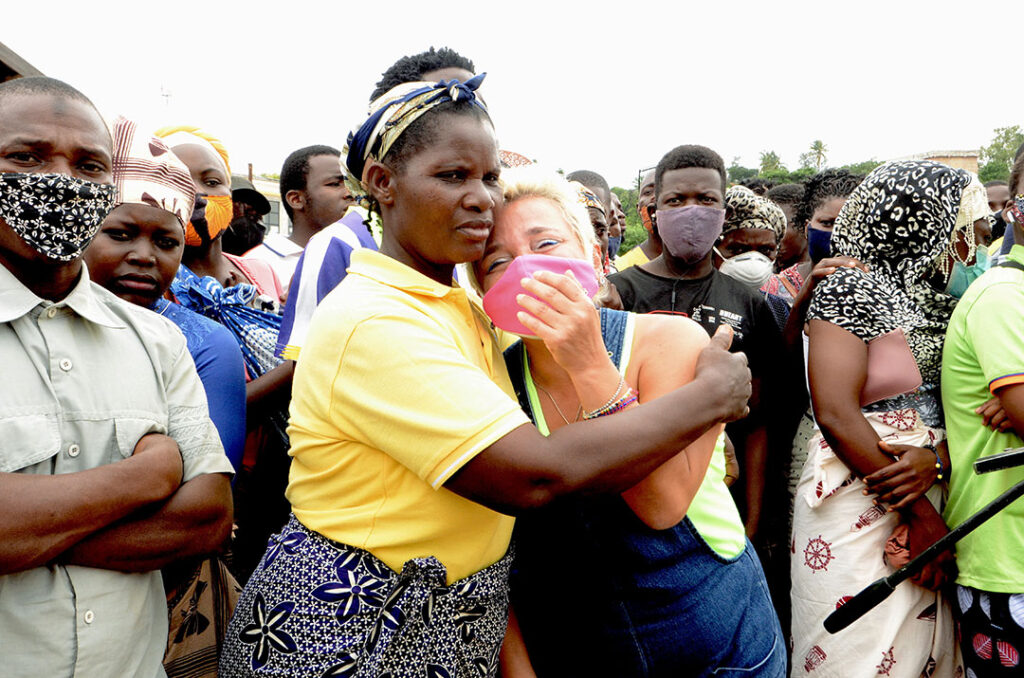ADF STAFF
A recent terror attack on Palma, a strategic port town in northern Mozambique, left dozens of Mozambican troops and civilians dead. It also raised the country’s profile with the Islamic State group (IS) and other terrorists around the world.
The group behind the attack is Ansar al-Sunna, but locals refer to it as “al-Shabaab,” even though it has no links to the Somalia-based terror group of the same name. IS has lost territory and power in Syria and Iraq in recent years but has made steady inroads in Africa, especially in Mozambique. This could inspire supporters worldwide to join their ranks in Mozambique and around the continent, security experts say.
Austin Doctor, an incoming assistant professor of political science at the University of Nebraska at Omaha and co-author of a report about foreign fighters in Mozambique for the website War on the Rocks, said terror operations in Mocímboa da Praia and Palma “can make a conflict an especially desirable destination point.”
“Foreign fighters are attracted to winners — or at least to insurgencies that have reasonable prospects of success,” Doctor told ADF in an email. “No prospective foreign recruit wants to join a fight where the local insurgent group is already on the ropes.”
This has happened before. After suffering failures in the Middle East and Libya, many foreign fighters spread to various parts of Africa’s Sahel region, including the tri-border region of Burkina Faso, Mali and Niger.
The extremist group in Mozambique already is drawing fighters from Africa’s Great Lakes region, South Africa, Tanzania and Uganda, according to the War on the Rocks article.
There is no known coordinated effort to prevent foreign fighters from entering Ansar al-Sunna’s ranks in Mozambique, according to Emilia Columbo, a senior associate with the Africa Program at the Center for Strategic and International Studies, who co-authored the War on the Rocks report with Doctor.
At least twice last year, Tanzanian authorities intercepted young people who said they were en route to fight in Mozambique’s Cabo Delgado province, where Palma and Mocímboa da Praia are located, Columbo said.
“But that appears to have been a unilateral, internal security activity,” Columbo told ADF in an email. “Mozambican and Tanzanian authorities have talked about the need for greater cooperation, but it is unclear if that has gone beyond public statements. When the subject of international intervention in Cabo Delgado comes up, Mozambican officials often raise the need for better border security, suggesting whatever is happening now is still lacking.”
In a report in The Daily Mirror, a security expert said it might not even matter to some foreign fighters whether they are joining a group related to IS. Poverty, civil wars and “general dissatisfaction” are all recruiting tools used to lure “very angry jihadists,” but simply getting paid to fight is often reward enough, the expert said.
Columbo expects terrorist violence to continue in Mozambique for the foreseeable future.
“The insurgents have been steadily increasing their operational capability, launching bold, well-coordinated attacks against harder targets, such as Palma,” Columbo said. “Meanwhile, the government’s security forces are ill-equipped to deal with this security problem, and the government has not prioritized the socioeconomic programs that would help address the root causes of the conflict.”

